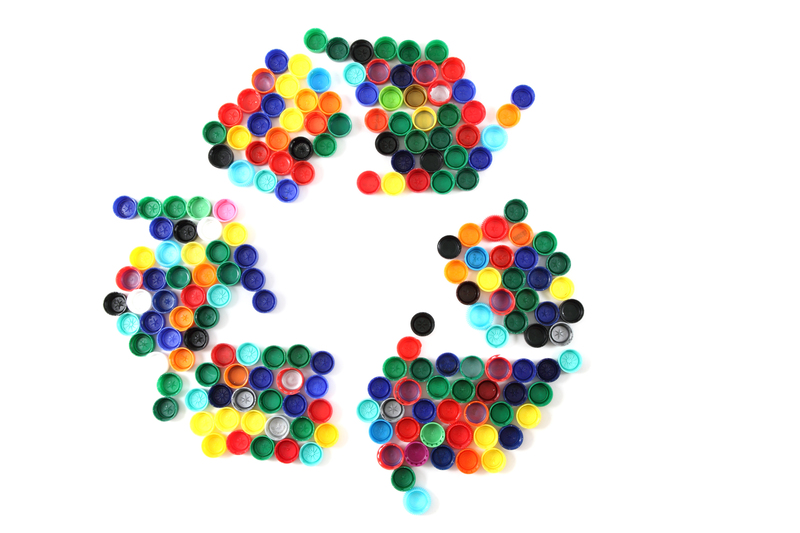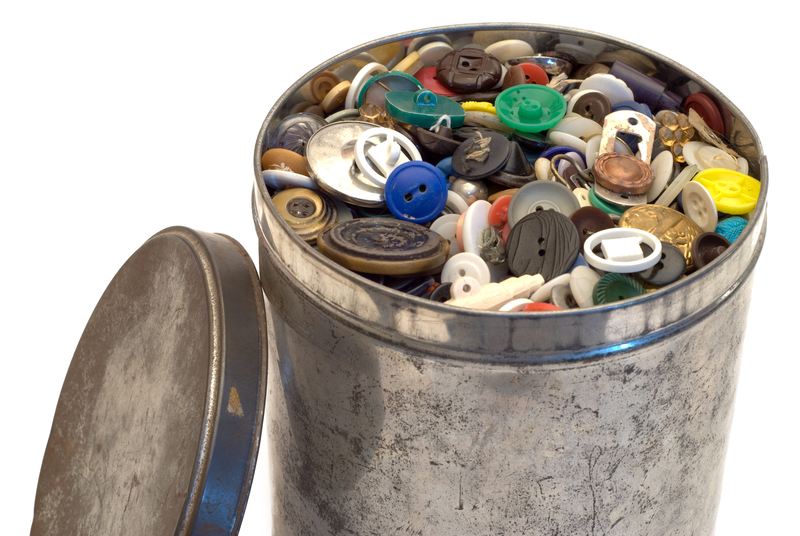
Unlock Serenity: Efficient Clutter and Hoarder Solutions
In our modern world, physical environments have a profound impact on mental well-being. Homes filled with clutter can overwhelm the senses, cause stress, and disrupt daily life. *Unlocking serenity* starts with letting go of what no longer serves you, and embracing efficient strategies tailored for both everyday clutter and more severe hoarding situations. Whether you're seeking to regain control of your space or supporting someone with hoarder tendencies, the journey to tranquility begins with the right information and actionable steps.
Why Decluttering Transforms Lives
Clutter is more than a visual nuisance -- it can sap your energy, cloud your thoughts, and even pose health risks. Studies show that organized spaces foster calmness, improve productivity, and enhance creativity. On the other hand, environments overrun with objects may lead to anxiety and decision fatigue.
- Mental Clarity: An uncluttered space helps minimize distractions and supports clearer thinking.
- Safety: Removing excess items reduces tripping hazards and improves mobility through your home.
- Stress Reduction: The act of decluttering is therapeutic, providing a sense of accomplishment and control.
For those living with hoarding disorder, the challenges are particularly acute, as clutter management intersects with emotional needs and compulsive behaviors. Yet it's possible to unlock serenity with targeted, compassionate, and systematic solutions.
Understanding the Roots of Clutter and Hoarding
While clutter can affect anyone -- often the result of busy lifestyles, lack of storage, or sentimental attachments -- hoarding is a recognized mental health condition characterized by persistent difficulty discarding items, regardless of their value.
- Clutter: Typically arises from delayed decisions or habits, and is often manageable with practical solutions.
- Hoarding: Involves excessive accumulation and emotional attachment, interfering with basic living activities.
Identifying the difference is crucial, as efficient solutions for clutter may not always be appropriate for severe hoarding cases. Compassion, patience, and oftentimes professional intervention are essential when addressing hoarding.
Efficient Clutter Management Strategies
A systematic approach to decluttering can quickly restore order to any space. Here's how to get started:
*1. Set Clear, Achievable Goals*
- Start with one area at a time - a desk, a closet, or a corner of a room.
- Visualize the end result and remind yourself of the benefits to stay motivated.
*2. Sort and Categorize*
- Use broad categories: Keep, Donate, Recycle, Discard.
- Handle each item and decide its destination immediately to prevent second-guessing.
*3. Employ the Four-Box Method*
- Designate four boxes: Trash, Give Away, Keep, Relocate.
- This method aids in quick, clear decisions and maintains momentum.
*4. Utilize Storage Solutions*
- Incorporate shelving, labeled bins, and drawer organizers for efficient use of space.
- Store items vertically when possible to maximize visibility and accessibility.
*5. Establish Daily and Weekly Routines*
- Put items back in their intended spots immediately after use.
- Set a timer for 10-15 minutes each day to maintain a tidy environment.
Consistency creates long-term serenity. Even small, incremental efforts can yield dramatic results over time.
Specialized Hoarder Solutions for Lasting Change
Tackling hoarder-level clutter requires an elevated approach that blends logistical planning with empathy. If you or someone you support faces hoarding challenges, consider the following:
*1. Seek Compassionate Support*
- Work with mental health professionals familiar with hoarding behavior.
- Build a support network of understanding friends and family.
*2. Avoid Judgement and Pressure*
- Recognize that hoarding is not laziness but a complex struggle often rooted in trauma, anxiety, or loss.
- Progress may be slow -- celebrate small successes to build confidence.
*3. Create a Safe Sorting Environment*
- Clear small sections at a time to prevent overwhelm.
- Establish clear boundaries for what to keep -- focus on safety, utility, and sentimental value.
*4. Develop a Gradual Plan*
- Set realistic, step-by-step goals, such as clearing a single shelf or a corner each week.
- Encourage ongoing therapy alongside decluttering for holistic healing.
*5. Professional Hoarder Cleanup Services*
- Many communities offer specialized hoarder cleanup services trained in sensitive, respectful debris removal and sanitation.
- Explore local options and resources for help reclaiming living spaces.
The journey to serenity is unique for each person, particularly in hoarding circumstances, but with time, understanding, and the right assistance, transformation is attainable.
The Psychology Behind Letting Go
Understanding why decluttering is so difficult, especially in hoarding cases, can make lasting change possible. Items often represent memories, aspirations, and identity. Parting with them can trigger feelings of loss or guilt. Efficient clutter and hoarder solutions address both the emotions and the physical clutter itself.
- Challenge perfectionism -- there's rarely a "perfect" way to declutter.
- Practice gratitude for items that have served their purpose before letting them go.
- Remind yourself that your worth is not tied to your belongings.
Breaking free from the cycle of accumulation is a critical component in unlocking everyday serenity.
Room-by-Room Clutter Solutions
- Kitchen: Discard expired food, free up counter space, and organize utensils for efficient meal prep.
- Bedroom: Streamline your wardrobe, use under-bed storage, and keep nightstands clutter-free for better sleep.
- Living Room: Minimize decor, designate a basket for remotes and magazines, and regularly sort through mail.
- Bathroom: Remove old toiletries, maximize cabinet space with containers, and keep countertops clear.
- Garage/Basement: Use sturdy shelves and label boxes clearly. Only keep tools and items you actively use.
How Technology Supports Efficient Decluttering
Today's digital age offers new solutions for tackling clutter and hoarding:
- Use organizing apps to schedule tasks and track progress.
- Digitize paperwork and photos to reduce physical storage needs.
- Connect with online support communities for encouragement and resources.
Unlocking serenity often starts by putting technology to work in simplifying decluttering routines.
Maintaining the Serenity You Unlock
Achieving a peaceful, organized space is a significant milestone, but maintaining it is key to lasting serenity. Implementing ongoing habits and boundaries will help you avoid future clutter.
- Adopt a "one in, one out" rule: for every new item brought in, one is removed.
- Schedule seasonal reviews: reassess wardrobes and storage several times a year.
- Stay mindful of emotional purchases or impulsive collecting behaviors.
- Involve the whole household: assign age-appropriate tasks to all members for shared responsibility.
Regular upkeep supports both a welcoming home and a calm mind.
When & How to Seek Professional Hoarder Solutions
Not every situation can be managed alone. Professional clutter and hoarding solutions can provide critical expertise and compassionate care, especially when:
- The safety of residents is at risk due to excessive accumulation.
- Clutter interferes with hygiene, repairs, or emergency access.
- Emotional distress becomes overwhelming or leads to isolation.
Reach out to local counselors, therapists trained in hoarding disorder, or specialized cleaning services. Support groups, both in person and online, are invaluable for ongoing encouragement and advice.
The Broader Impact: Environmental and Community Benefits
Efficiently clearing clutter and providing hoarder solutions doesn't just benefit the individual. It reduces waste, allows for donation of usable items, and fosters stronger community ties. Charities, shelters, and recycling centers all benefit from thoughtful decluttering.
- Reduce landfill waste: By recycling and donating, you help the environment.
- Support local causes: Community centers and non-profits make good use of your gently used goods.
- Set a positive example: Your journey may inspire neighbors, friends, or family to tackle their own clutter.
Frequently Asked Questions About Clutter and Hoarder Solutions
-
How do I know if I need professional help for my clutter?
If clutter causes significant stress, affects safety, or disrupts normal living, a professional assessment can provide clarity and solutions. -
What is the first step for addressing hoarding in a family member?
Begin with open, compassionate conversations and research local mental health resources specializing in hoarding disorder. -
How often should I declutter?
Consistency is key. Set monthly or seasonal decluttering sessions to maintain order. -
Can hoarding ever be "cured"?
With ongoing support and professional intervention, many people can achieve lasting improvements in hoarding behaviors, though underlying tendencies may persist.

Your Path to Serenity Starts with a Single Step
Unlocking serenity through efficient clutter and hoarder solutions is a transformative process that touches every aspect of life -- physically, emotionally, and socially. By addressing clutter with strategic habits and caring support, anyone can reclaim their personal sanctuary. Begin now with small, manageable actions, and celebrate the peace you create.
For more resources, expert guidance, and ongoing tips on unlocking serenity with efficient clutter and hoarder solutions, subscribe to our newsletter or reach out for a personalized plan today!